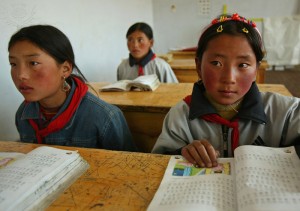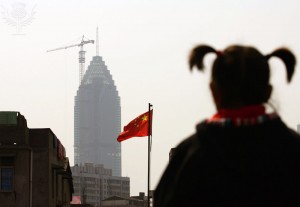By M. Turner and E. Martin
“Jiaoshike Village Boarding School In Gangcha County.” Britannica Image Quest.
N.p., n.d. Web. 6 Apr. 2014. <http://www.gettyimages.com/>.
“Students from Migrant Worker Families Have Trouble Attending School.” Britannica Image Quest. N.p., n.d. Web. 6 Apr. 2014. <http://www.gettyimages.com/>.
It is crucial when studying Early Chinese Education, that one investigates the origin of its current state. It is interesting to note that many sociologists, educational researchers, and economists have delved into this question of why Chinese Education is the way it is. With the major economic reforms in China during the 1970’s, living standards, class structure, and social mobility changed drastically, reforming the education system in the process. The structure of the education system shifted along with the development of the economy, putting more importance in the labor market on the need for education. This shift is achieved through the introduction of private schooling, for example, in which private individuals or enterprises run the school. Though it causes a divide between social classes, private schools meet the demand for education that oftentimes public schools cannot in China. The availability of resources is a aspect of early Chinese education which has the capacity to change the future of a young Chinese learner.
For children, educational and job opportunities increase with the shift in economy. According to Education and Reform in China, access to education for children was enforced in 1986 with the Law on Compulsory Education, which states that all children must have six years of primary education and three years of secondary education (Ministry of Education 1986). The value of schooling quickly increased when the focus on economy shift from agricultural to non-agricultural. Migration to the city from farms meant more jobs and subsequently, a higher demand for education. Ultimately, an education in China results in a high status job and further progress in society (Hannum and Park).
For more information on Early Education in China, check out these blogs:
The Exciting History of Early Education in China
Citation:
Hannum, Emily, and Albert Park, eds. Education and Reform in China. New York: Routledge, 2007. Print. Asia’s Transformations.


